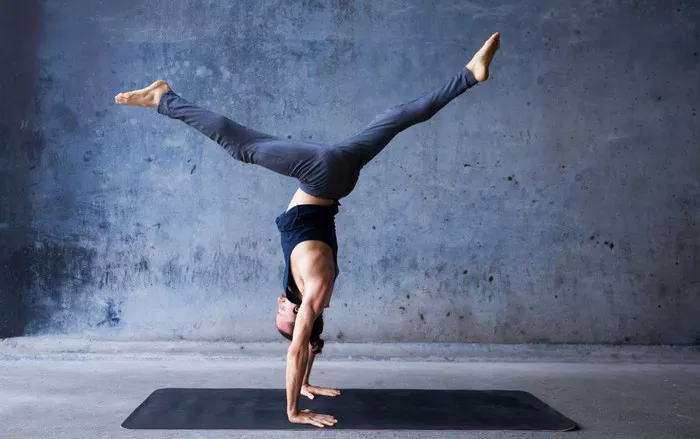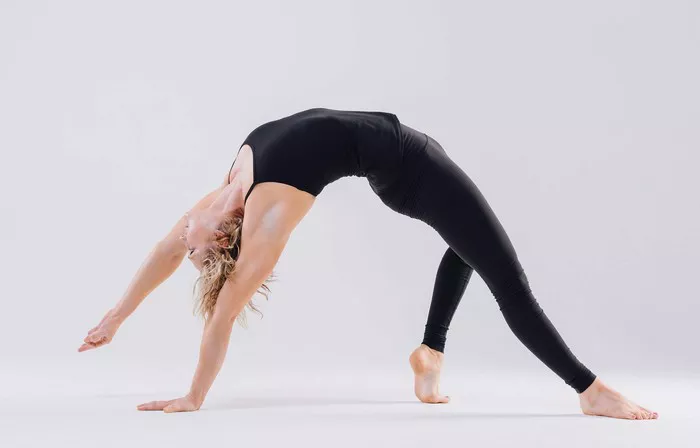Sudarshan Kriya Yoga (SKY) is a powerful breathing technique that has gained widespread popularity for its ability to promote mental clarity, emotional balance, and overall well-being. Developed by Sri Sri Ravi Shankar, the founder of the Art of Living Foundation, this rhythmic breathing practice helps regulate emotions, reduce stress, and enhance mental focus. While Sudarshan Kriya offers numerous benefits, it is not suitable for everyone. Certain individuals should exercise caution or avoid practicing it altogether to prevent potential adverse effects.
In this article, we will explore who should not practice Sudarshan Kriya Yoga and the reasons why they should refrain from it.
Individuals with Severe Mental Health Conditions
Sudarshan Kriya is known to have a profound impact on emotions and mental states, which may not be suitable for people with severe mental health disorders. Those diagnosed with the following conditions should avoid this practice or seek medical advice before attempting it:
Schizophrenia: Sudarshan Kriya can induce altered states of consciousness, which may exacerbate symptoms in individuals with schizophrenia or other psychotic disorders.
Bipolar Disorder: People with bipolar disorder may experience mood swings or manic episodes triggered by the intense breathing patterns of Sudarshan Kriya.
Severe Anxiety or Panic Disorders: The practice involves deep and rapid breathing, which can sometimes lead to hyperventilation, dizziness, or panic attacks in individuals with extreme anxiety.
Depression with Suicidal Tendencies: While Sudarshan Kriya is often promoted as a remedy for depression, those with severe or suicidal depression should practice it only under professional supervision.
Individuals with Cardiovascular Issues
Breathing exercises in Sudarshan Kriya can lead to fluctuations in blood pressure and heart rate. People with the following cardiovascular conditions should be cautious:
Hypertension (High Blood Pressure): Sudarshan Kriya may temporarily increase blood pressure due to the rapid breathing involved. Those with uncontrolled hypertension should avoid it or practice it under guidance.
Hypotension (Low Blood Pressure): The practice may cause dizziness or lightheadedness in individuals with low blood pressure, potentially leading to fainting.
Heart Disease or Arrhythmia: Individuals with heart conditions, including arrhythmia (irregular heartbeat), should avoid strenuous breathing exercises, as they might put additional strain on the heart.
Pregnant Women
Pregnancy is a delicate phase in a woman’s life, requiring caution when engaging in intense physical or breathing exercises. Sudarshan Kriya involves deep and forceful breathing, which may not be suitable for pregnant women because:
- It can create undue stress on the body.
- The rhythmic breathing may lead to hyperventilation, causing dizziness or fainting.
- It may stimulate uterine contractions, potentially leading to complications. Pregnant women should consult their healthcare provider before practicing any form of yoga, including Sudarshan Kriya.
Individuals with Respiratory Disorders
Sudarshan Kriya involves controlled breathing patterns, which may not be suitable for individuals with respiratory conditions, such as:
Asthma: The practice may trigger breathing difficulties, especially in those with severe asthma.
Chronic Obstructive Pulmonary Disease (COPD): Rapid breathing techniques can place additional strain on the lungs, making it difficult for individuals with COPD to breathe properly.
Severe Sinusitis or Nasal Blockage: Difficulty in nasal breathing can interfere with the practice, causing discomfort and frustration.
People with Epilepsy or Seizure Disorders
Sudarshan Kriya’s breathing patterns can alter brain wave activity, potentially triggering seizures in individuals prone to epilepsy. The hyperventilation effect of this practice may lower carbon dioxide levels in the blood, increasing the risk of a seizure. Therefore, individuals with epilepsy should avoid this practice or seek medical approval before attempting it.
Those Recovering from Major Surgery
Individuals recovering from major surgery, especially abdominal, thoracic, or cardiac surgeries, should refrain from practicing Sudarshan Kriya. The intense breathing patterns can:
- Put undue pressure on healing tissues.
- Increase the risk of complications by straining the body.
- Cause dizziness or lightheadedness, increasing the risk of falls or injury. Recovery patients should consult their doctor before resuming any form of yoga practice.
Individuals with Severe Migraines or Chronic Headaches
Rapid and forceful breathing techniques in Sudarshan Kriya may act as a trigger for migraines or chronic headaches. Individuals prone to such conditions may experience worsened symptoms due to the changes in oxygen and carbon dioxide levels in the bloodstream.
Young Children and the Elderly
While mild breathing exercises can be beneficial for children and older adults, the intensity of Sudarshan Kriya may not be appropriate for these age groups.
Children under 12 years old: Their developing lungs and nervous systems may not be suited for the rigorous breathing cycles of Sudarshan Kriya.
Elderly individuals: Those with weakened lung function or pre-existing health conditions may experience dizziness, breathlessness, or undue strain from the practice.
People with a History of Fainting or Dizziness
The rapid and deep breathing associated with Sudarshan Kriya can sometimes cause dizziness, lightheadedness, or fainting. Individuals with a history of frequent fainting spells or vertigo should be cautious and seek medical guidance before practicing this technique.
Conclusion
Sudarshan Kriya Yoga is a powerful practice with numerous benefits, including stress reduction, emotional balance, and enhanced mental clarity. However, it is not suitable for everyone. Individuals with severe mental health conditions, cardiovascular diseases, respiratory disorders, epilepsy, pregnancy, or those recovering from major surgery should avoid practicing it or do so only under the supervision of a qualified instructor and with medical approval.
If you are unsure whether Sudarshan Kriya is right for you, consult a healthcare professional before attempting it. As with any yoga or meditation practice, listening to your body and prioritizing your health is crucial for ensuring a safe and beneficial experience.
Related Topics:













